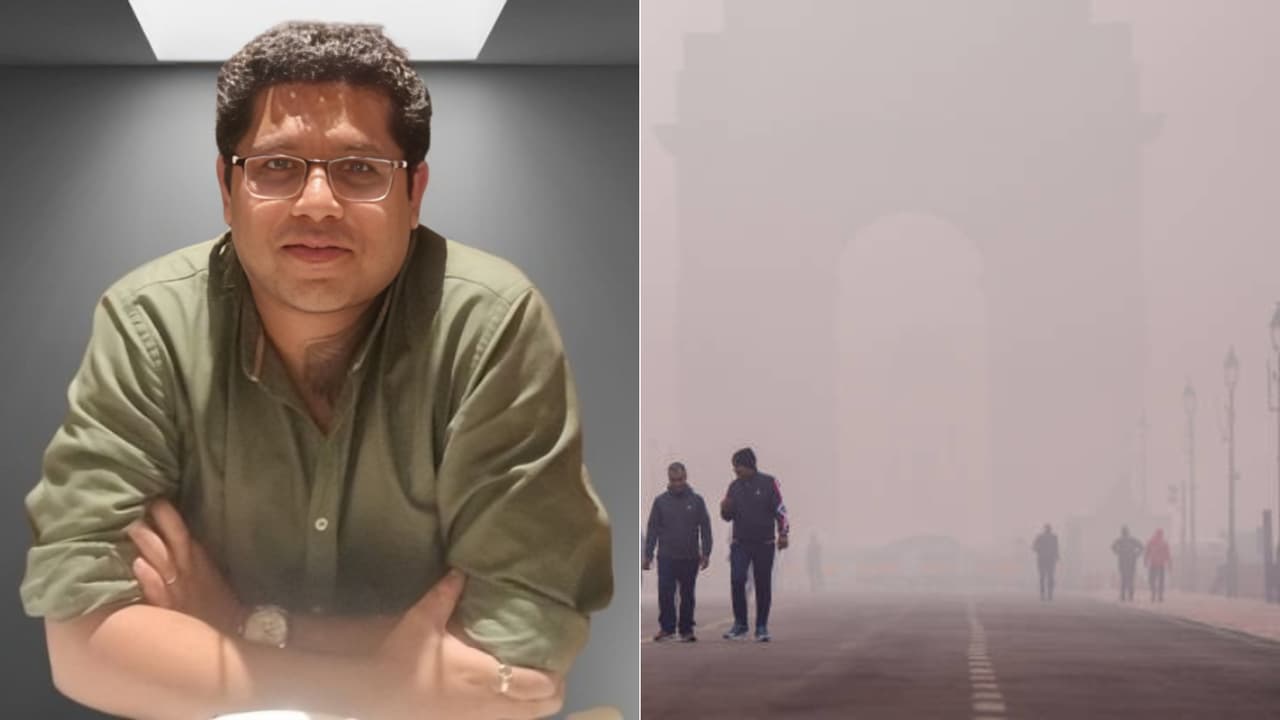A LinkedIn post by Ravi Verma, Head of Marketing at AdChoreo, has gone viral after he said he is leaving Delhi after 13 years because pollution ruined health and family life. He listed deaths in his family, severe illness and pollution-induced asthma
A LinkedIn post describing how Delhi’s worsening pollution forced a man to leave the city has gone viral, striking a chord with thousands. In the post, Ravi Verma, Head of Marketing at AdChoreo, details the health problems, emotional strain and daily hardships his family faced as toxic air became unbearable. The story has reignited public debate over Delhi’s recurring air-quality emergency and its human cost.
Delhi’s toxic air
According to the Air Quality Early Warning System, Delhi’s air quality remained in the very poor category on Saturday morning with an average AQI of 359. A layer of toxic smog covered large parts of the city. ITO and India Gate recorded AQIs of 370; Akshardham and nearby areas showed severe readings of 422; Noida Sector 125 was at 434, still in the severe range though slightly better than on Friday.
The Commission for Air Quality Management (CAQM) has kept GRAP-3 in effect since November 11, imposing curbs on construction, heavy vehicles and industries. The restrictions aim to cut emissions but have also paused construction work and affected many daily-wage workers.
Legal moves and relief measures amid worsening air
In the face of rising pollution and complaints from parents, the Delhi High Court ordered a halt to all outdoor school sports events after minors argued the winter smog is harmful to their lungs. Justice Sachin Datta said authorities were failing to protect children and suggested reworking the sports calendar to avoid toxic months.
The Supreme Court has also weighed in, directing that construction workers left without work after GRAP-3 be given a subsistence allowance in Delhi, Punjab, Haryana and Rajasthan. The court’s step aims to soften the economic hit on workers while pollution control measures remain in place.
The LinkedIn post of man leaving Delhi
Amid these official moves and weather reports, one LinkedIn post struck a raw chord. Ravi Verma, who identifies himself as Head of Marketing at AdChoreo, announced he is leaving Delhi after 13 years. His message mixed grief, anger and a clear warning about health risks.
Verma wrote that during his time in the city he lost adult members of his family to COVID, including his wife, brother, mother and sister-in-law. He said he now faces serious health issues: avascular necrosis in both femoral heads, meaning he will need total hip replacements in his 40s, and pollution-induced asthma for which he now uses inhalers.
“Nothing, I repeat, nothing is worth losing this much,” Verma wrote. He said this year’s pollution, combined with his asthma, finally made him decide to move. He urged others to prioritise health and leave Delhi NCR ASAP if they can. He also criticised fellow citizens, saying too few people wear masks, children still go out for morning walks and no one shows sufficient urgency.
The post’s blunt lines and the strong reactions it drew
Verma’s post was blunt and emotional. He wrote, “This is not normal. Also, those who say, ‘not everyone can just leave’ don’t put healthy living first. I suffered. I learnt my lesson.” He ended with, “To Delhi – Good riddance.”
The post drew many sympathetic replies. One comment said: “Your message is a tough reminder of what chronic neglect and worsening pollution can do to real people. Wishing you strength and a peaceful new beginning.” Another reader wrote they had left Delhi themselves and called it the best decision for health. A third asked, “Is anything we achieve worth if we are breathing poison?”
Many readers framed the post as a warning and a grieving account. Others noted the privilege needed to move, and some argued that mass migration is not a feasible solution for everyone.
Public health, social choices and the politics of leaving
Verma’s post has reopened a familiar debate. For some, his message is proof that Delhi’s air has reached intolerable levels and that personal choices, including moving away, are legitimate survival steps. For others, it underlines the inequality of solutions: many families cannot simply relocate for economic reasons.
Experts and public voices say the real fix must be systemic. While individual moves relieve one household, lasting change needs stricter enforcement, clean fuel, better public transport and fairer policies that protect the most vulnerable. The court orders on sports cancellations and worker allowances show that the state faces pressure to act, but public frustration is rising.
Ravi Verma’s LinkedIn message turned private grief into public debate. It mixed personal loss, medical detail and a call for action. The post did not only ask for sympathy; it demanded urgency from citizens and the state. As Delhi continues to breathe very poor air under GRAP-3, the questions remain: who can leave, who must stay, what if everyone cannot afford to leave and who will fix the air for everyone?
(With ANI inputs)
